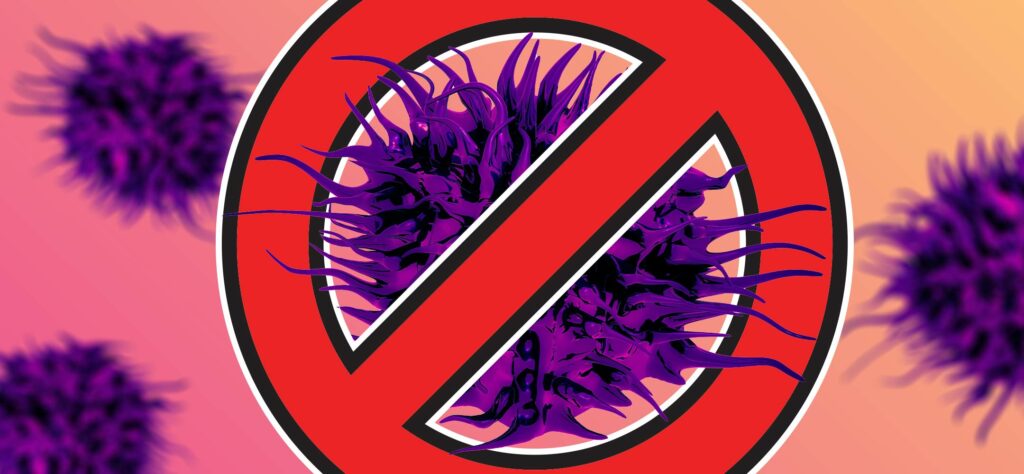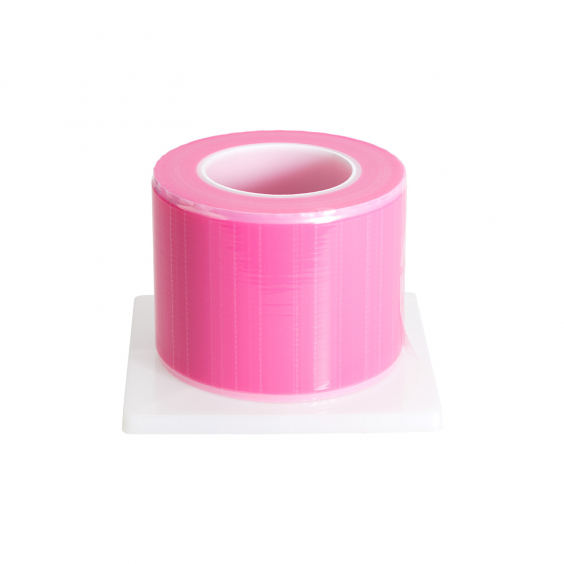Infection Control - How to Protect You & Your Clients
Working in the permanent makeup industry, it’s hard to overstate how important health, safety and hygiene are, not just for the real people you deal with every day but also to protect your own business!
Read on for our advice about how to protect yourself and your clients through best practice and thorough training courses!
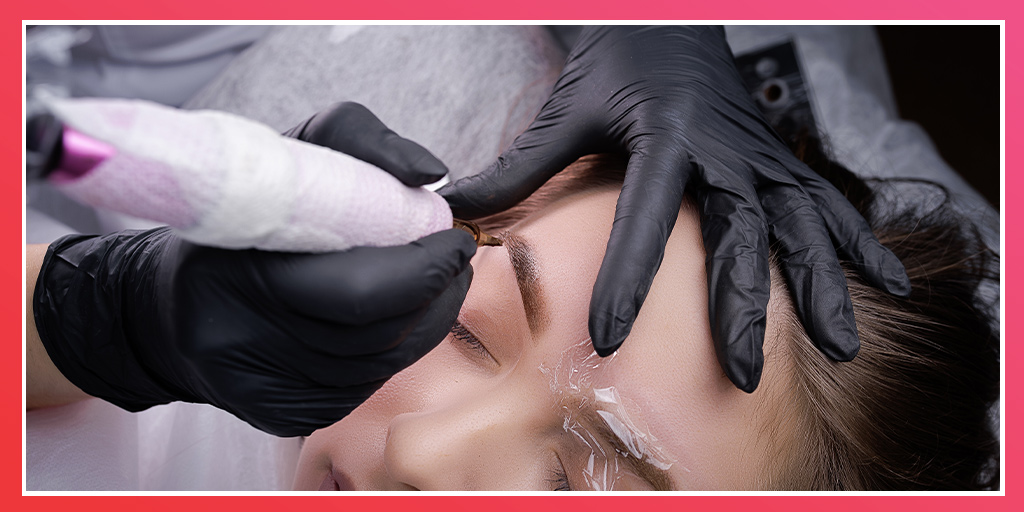
What is a blood borne pathogen?
Blood borne pathogens are microscopic organisms that live within the blood and can cause serious infectious diseases such as HBV, HCV and HIV.
The risk of transmitting these and other infections is one that you need to be aware of if your job involves regularly dealing with blood and other bodily fluids, which PMU artists do – as the procedure involves breaking the skin.
And while it’s your client who’s most likely to contract a blood borne pathogen through the broken skin, as the person handling the sharp objects you are also at risk. With pathogens like Hepatitis B staying active for up to 7 days in dried blood and needle stick injuries incredibly common, this is about your health too!
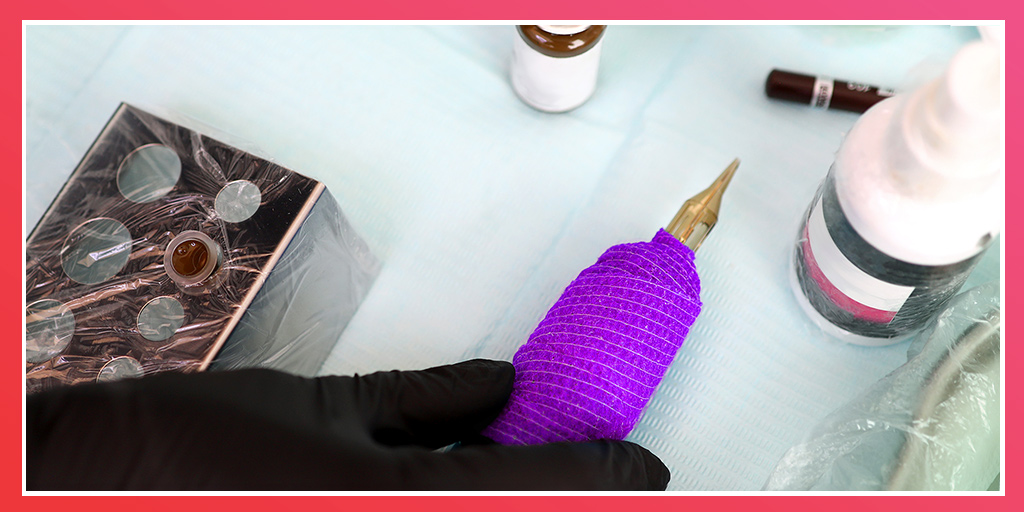
What infection control training do I need?
As part of your PMU training course, it’s essential that you learn about infection control!
Any accredited PMU course should have a section about infection control - this includes knowledge about the potential risks, best practice for using PPE, and how to reduce cross-contamination in your clinic. Most courses will also require you to complete an online qualification in blood borne pathogens before you can attend your beginner training.
If you haven’t been asked specifically to complete this course and learn why and how you can minimise the risks, you should still look into completing a blood borne pathogens course in your own time, which you can find online.
What products should I use?
Only high-quality, safety-focused products should be used in your PMU and SMP treatments, such as those we sell here at Killer Beauty!
Anything you use that comes into contact with your client’s skin or blood should be disposable - this includes blades or cartridges, gloves, swipe sticks and more. Anything that can’t be disposed of - such as your PMU machine - can be barrier wrapped for safety, with the wrap then disposed of at the end of the appointment according to the appropriate clinical waste process.
You should only use needle cartridges that contain a safety membrane, as this has two purposes: firstly it prevents ink and blood from your client from flowing back up into the machine, which can break the motor, and secondly it pulls the needle in while the cartridge isn’t being used to minimise the chance of poking yourself with the sharp tip.
Your sharps bin should always be close at hand, ideally close enough that you don’t need to get up from your chair or stool to safely dispose of your cartridges! And all working artists should have a clinical waste contract in place for safe and sterile collection from their workplace.
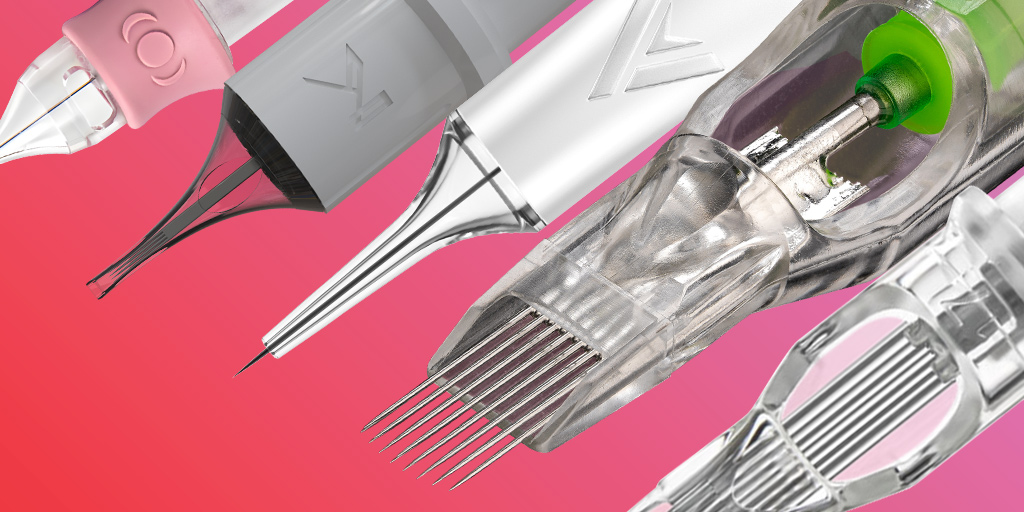
Cleaning and disinfecting your environment
There are just a few key rules to be aware of when it comes to cleaning and disinfecting your workstation or tray!
When you learn about cross-contamination, you’ll begin to understand how easily bacteria and organisms can move around an environment - every time you touch something new you’re presenting a new site of contamination.
You’ll need an effective surface disinfectant for all of your furniture and equipment - even those pieces of equipment you’ve covered need to be cleaned down between clients. Try to avoid any furnishings that can’t be easily disinfected or wiped down – carpets or rugs, for example, are not ideal for a PMU clinic.
For some reusable tools like grips, you can sanitise them with use of an autoclave or ultrasonic cleanser - just make sure you have the necessary cleaning powders or fluids.
PPE
This isn’t just for your personal protection, but also for the protection of your clients!
For all your procedures you should be wearing disposable latex or nitrile gloves. Many artists prefer to work in masks, as they’re often so close to the treatment site that there is an increased risk of spreading droplet infection, as well as hair nets, and disposable aprons to protect their clothes.
Protection covers for your equipment
For those pieces of kit that you can’t afford to get rid of after your appointment - like your PMU machine or furniture - you’ll need protection covers.
For furniture, you can use dedicated disposable bed sheets or use a stretch shrink wrap instead. Your machine should be wrapped in a machine bag or barrier film, as well as your power supply and cable (if you’re using one).
You can use barrier film for absolutely everything you’re going to touch during the appointment, including your light switch, power supply, and even your glasses if you think you might need to push them back up.
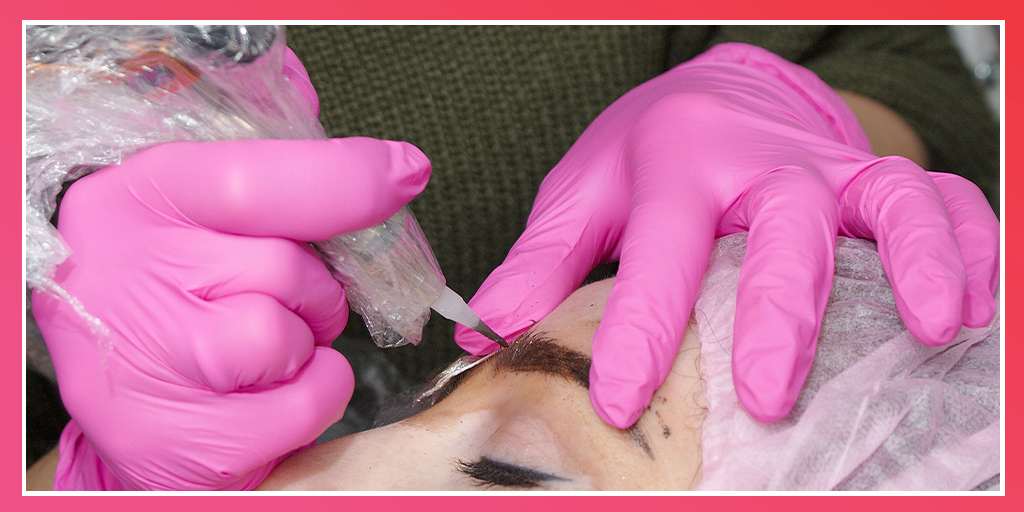
Work tray safety
Getting into good habits when you set up your work tray are essential for maintaining hygiene and cleanliness!
In our blog on How To Set Up Your PMU Work Tray, we go through the entire process from the initial surface sanitisation through proper machine wrapping. We also talk you through how to set up everything you need on your work tray, and when the right time is to open your cartridges!
Once the treatment begins, only pre-wrapped and disposable items should be coming anywhere near your work tray. Otherwise, it will have to go in the clinical waste as the item will be potentially contaminated!
Now you should be ready to carry out your treatments safely and effectively, contributing to happier clients and better-healed treatments for your portfolio!
